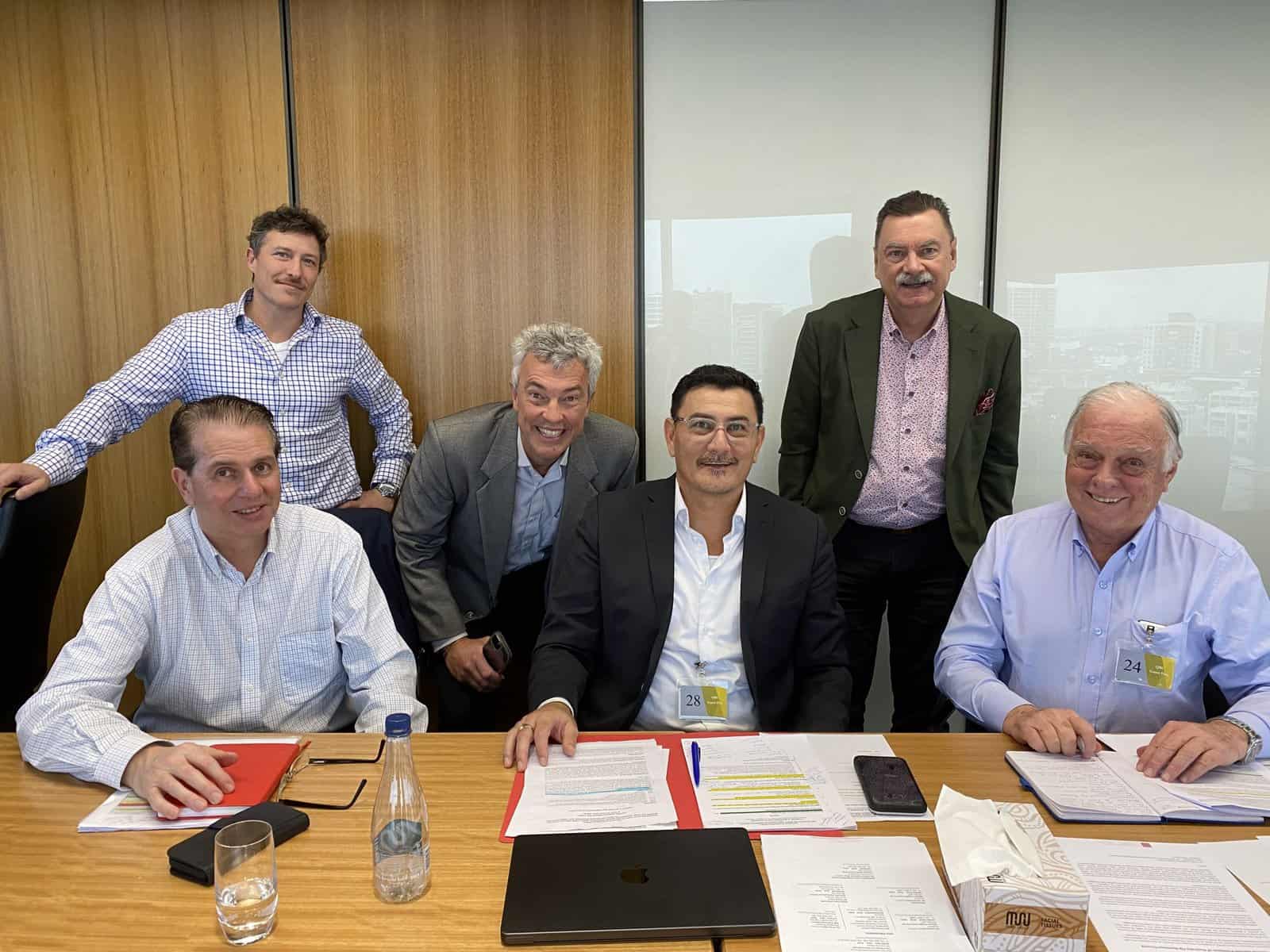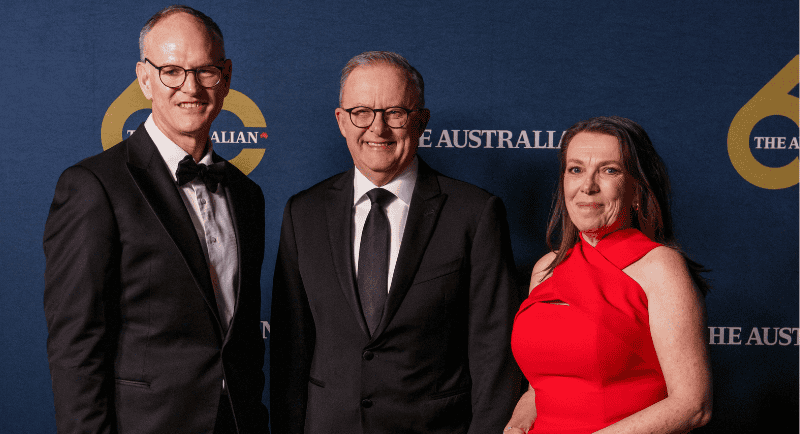The Future Fund’s investments are already politicised, but we pretend otherwise

- by Admin
- November 23, 2024
Last week, the federal government’s decision to change the Future Fund’s investment mandate drew some heavy criticism.
Senior members of the Howard Coalition government, which created the Future Fund in 2006, blasted the decision.
They said the Future Fund had to be left alone, free from political interference, so it could keep investing in areas of the global economy it thought would make the best financial returns.
David Murray, the Future Fund’s inaugural chairman, said the fund’s “independence” was the bedrock of its investing success and reputation as a sovereign wealth fund, and we shouldn’t mess with it.
“It was never the subject of politicisation of its investments,” he told Sky News.
But that statement of his wasn’t completely accurate.
You don’t have to look too far to find an example of the Future Fund’s investments being politicised. It happened in the last 12 months, thanks to a Coalition senator.
And the notion that the Future Fund’s “independence” is a politically neutral state of affairs is worth questioning too, because its investments have political consequences.
The owners of sovereign wealth funds in other parts of the world recognise that. That’s why they give their funds much stricter investment orders.
What has the federal government done?
The Future Fund’s investment mandate is well known.
It is required to achieve an average annual return of 4-5 percentage points above headline inflation every year over the long term, with an acceptable but not excessive risk.
The federal government says that’s not going to change.
However, the government says the Future Fund will now be required to consider Australia’s national priorities in its investment decisions “where possible, appropriate and consistent with strong returns”.
It says those “national priorities” are:
- Supporting the energy transition as part of the net zero transformation of the Australian economy
- Delivering improved infrastructure located in Australia, including economic resilience and security infrastructure
- Increasing the supply of residential housing in Australia
Treasurer Jim Chalmers says Australia’s economy is facing major structural shifts due to the global net zero transformation, technological and demographic change, and global fragmentation.
The Future Fund agrees with that view.
In the past few years, the fund has published a series of papers discussing how much the global economy is changing and what it means for sovereign wealth funds. See: A New Investment Order (September 2021), The Death of Traditional Portfolio Construction? (December 2022), and Geopolitics: The bedrock of the New Investment Order (June 2024).
Chalmers says the Future Fund has made it clear it can play a prominent role in capitalising on those economic opportunities and supporting Australia’s prosperity.
He says the fund’s “primary objective” will continue to be “to maximise returns” but the extra element in its new investment mandate will hopefully mean there will be more investment where Australia needs it.
Is it unusual for the Future Fund to direct its attention towards (or away from) certain assets?
But let’s get to Murray’s statement.
Murray appeared on Sky News last week to talk about the Albanese government’s change to the Future Fund’s investment mandate.
This is what he said at the start of the interview, so you can see his statement in context:
Sky News host Andrew Bolt: David Murray, thanks for your time. The last head of the Future Fund, Peter Costello, has called this move a “political slush fund”. What’s your reaction to the government’s plan?
Former Future Fund chairman David Murray: Well, that’s exactly what this move of the government makes the Future Fund appear to be. It was never the subject of politicisation of its investments. [This decision] allows the government to invest in its own public projects off the budget and that’s not a good thing for the transparency of the Future Fund. It’s not a good thing for their long-term returns. And it undoes all the work that we put in since 2006 to get this [fund] set up with a fantastic international reputation.
There are a number of claims in that opening statement from Murray. One can imagine Chalmers taking issue with a few of them. Unfortunately, we don’t have time to weigh them all today.
The statement we’re interested in is the declaration that the Future Fund’s investments have never been politicised.
Because that’s incorrect and I’ll give you two examples to prove it.
Back in 2013, the Future Fund famously announced that it was henceforth going to exclude primary tobacco producers from its investment portfolio.
At the time, its exposure to securities issued by 14 entities involved in tobacco production totalled approximately $222 million.
Then-chairman of the Future Fund Board David Gonski explained the board’s reasoning this way.
“The board noted tobacco’s very particular characteristics, including its damaging health effects, addictive properties and that there is no safe level of consumption,” he said.
“In doing so, the board also considered its investment policies and approach to environmental, social and governance issues.
“As a result, the board determined that in this instance it is appropriate to exclude primary tobacco product manufacturers,” he said.
Today, the Future Fund maintains an “exclusions list” on its website — a list of companies it has officially chosen not to invest in. Companies can drop off the list and return to it for various reasons. The list is updated twice a year.
Currently, as of May 2024, there are 40 companies on the exclusions list linked to the primary manufacture of tobacco products, and there are another 11 companies linked to controversial weapons-related conventions or treaties that have been ratified by Australia.
That politicisation of tobacco products and the influence of the “environmental, social and governance” movement has clearly had a direct impact on the Future Fund’s investment choices.
It shouldn’t invest in ‘morally dubious’ companies
Here’s the second example.
In May this year, the Australian Financial Review revealed the Future Fund had recently divested its stakes in a slew of Chinese companies that federal Liberal senator James Paterson had been raising concerns about.
The companies had ties to the People’s Liberation Army or alleged human rights abuses.
“Taxpayer funds and Australians’ retirement savings should never be invested in companies linked to serious human rights abuses, sanctions evasion or military suppliers to an authoritarian state,” Paterson told the Australian Financial Review.
“The Albanese government should urgently provide advice to Australia’s outbound investment community to reduce the risk we are inadvertently financing morally dubious and strategically dangerous companies,” he said.
Interesting, hey?
And correct me if I’m wrong, but that looks like Paterson was calling on the Albanese government to get more involved in the investment decisions of the Future Fund.
That would be an interesting path to travel down, because the $230 billion Future Fund is currently investing in a range of companies that are subject to fierce international divestment campaigns.
As of June this year, according to the fund’s Periodic Investment Report June 30 2024, it currently owns shares in weapons manufacturers and other war-related companies including:
- RTX Corp ($100.1 million)
- Lockheed Martin ($69.3 million)
- Honeywell International ($90.6 million)
- BAE Systems ($50.2 million)
- General Dynamics ($71 million)
- Northrop Grumman Corp ($37.9 million)
- Boeing Co. ($12 million)
- Airbus SE ($9 million)
- L3Harris Technologies ($39.9 million)
- Elbit Systems Ltd ($1.3 million)
- Huntington Ingalls Industries ($9.4 million), and others.
The value of many of those shares has increased dramatically in the past 12 months for obvious reasons.
Now, last week, when Greens senator Barbara Pocock welcomed the federal government’s move to ask the Future Fund to consider investing in housing and renewable energy if the returns were there, she said the government should also make clear what the Future Fund should stop investing in.
She started with fossil fuels.
“Years ago, the Future Fund was directed not to invest in tobacco. Well, here’s the news: fossil fuels are the new tobacco,” she said.
“Any new mandate should make clear that the fund should not invest in coal, oil and gas.
Greens senator Barbara Pocock says the Future Fund should not be investing in coal, oil and gas companies. (ABC: Ian Cutmore)
“We can’t keep putting our foot on the accelerator and the brake at the same time. We’re in a climate crisis and Australians don’t want to see us investing in the very things that will make this crisis worse.
“This $230 billion belongs to all Australians and is there to benefit future generations.
“What sort of future will we leave them if we continue using our investments to prolong the energy transition and risk climate catastrophe?”
According to its June 30 Investment Report, the Future Fund owns shares in:
- Woodside Energy ($593 million)
- Santos ($261.3 million)
- Exxon Mobil ($138.9 million)
- Shell ($63.8 million)
- ConocoPhillips ($37.9 million)
- Chevron ($77.2 million)
- Whitehaven Coal ($74.3 million)
- AGL Energy ($89.2 million)
- Glencore ($26.6 million)
- Yancoal Australia ($21.9 million), and more.
How do other sovereign wealth funds do things?
It’s interesting to see how other sovereign wealth funds operate overseas.
The world’s biggest — Norway’s $US1.7 trillion ($2.6 trillion) Government Pension Fund Global — is a standard-bearer and an international leader in the environmental, social and governance (ESG) field.
Norway’s parliament has forbidden it from investing in firms that produce products such as nuclear weapons, landmines, tobacco and cannabis, and it can exclude companies for their involvement in human rights violations, corruption or environmental damage, as Reuters has reported.
In 2019, it ranked first in the world for sovereign wealth fund transparency and accountability, with a perfect score of 100.
| 2019 SWF Scoreboard Rankings | ||
|---|---|---|
| Country | Fund | Score |
| Norway | Government Pension Fund Global | 100 |
| New Zealand | New Zealand Superannuation Fund | 94 |
| United States | Permanent Wyoming Mineral Trust Fund | 93 |
| Chile | Economic and Social Stabilization Fund | 92 |
| Azerbaijan | State Oil Fund of the Republic of Azerbaijan | 92 |
| Canada | Alberta Heritage Savings Trust Fund | 91 |
| Timor-Leste | Petroleum Fund of Timor-Leste | 91 |
| Chile | Pension Reserve Fund | 89 |
| United States | Alaska Permanent Fund Corporation | 88 |
| Australia | Future Fund | 87 |
| Source: Peterson Institute for International Economics, February 2021, “Sovereign Wealth Funds Are Growing More Slowly, and Governance Issues Remain,” Policy brief, authors Julien Maire, Adnan Mazarei, and Edwin M. Truman. | ||
In September this year, Reuters reported that the Council on Ethics, the Norwegian fund’s ethical watchdog, had recently adopted tougher interpretations of ethics standards for businesses that were aiding Israel’s operations in the occupied Palestinian territories.
It reported that those tougher guidelines could see the influential sovereign wealth fund divesting shares of more companies.
The very next day, the Norges Bank Investment Manager announced that six more companies would be placed on the fund’s exclusion list.
And now, as things stand, the fund’s own exclusions list contains the names of many companies that Australia’s Future Fund is still openly investing in.
Those excluded companies that the Future Fund is still investing in include L3Harris Technologies, General Dynamics, Airbus SE, AGL Energy, BAE Systems, Boeing Co, Elbit Systems, Honeywell International, Lockheed Martin, Canadian Natural Resources, and more.
And just last week, Norway’s fund announced a new plan to merge its real assets team with its equities investments team.
It said the restructure would bring its energy investors together into a more complete team that covered both listed and unlisted renewable infrastructure opportunities.
“The ambition for this combined unit is to enable us to become a global leader in energy investing,” the announcement read.
Is it possible to disentangle politics from sovereign wealth funds and their investment decisions?
The Latest News
-
November 25, 2024Best Real Money Online Casinos Australia 2024 – Top Sites to Play and Win
-
November 25, 2024Haier becomes official partner of Australian Open and Summer of Tennis – Dimsum Daily
-
November 25, 2024Srixon UltiSoft balls: What you need to know – Australian Golf Digest
-
November 25, 2024Skipper’s ominous response after Aussies fail in Perth
-
November 25, 2024Stars behind Hawk, Power surges miss as superstars reach seventh heaven — AFLW All-Australian team



